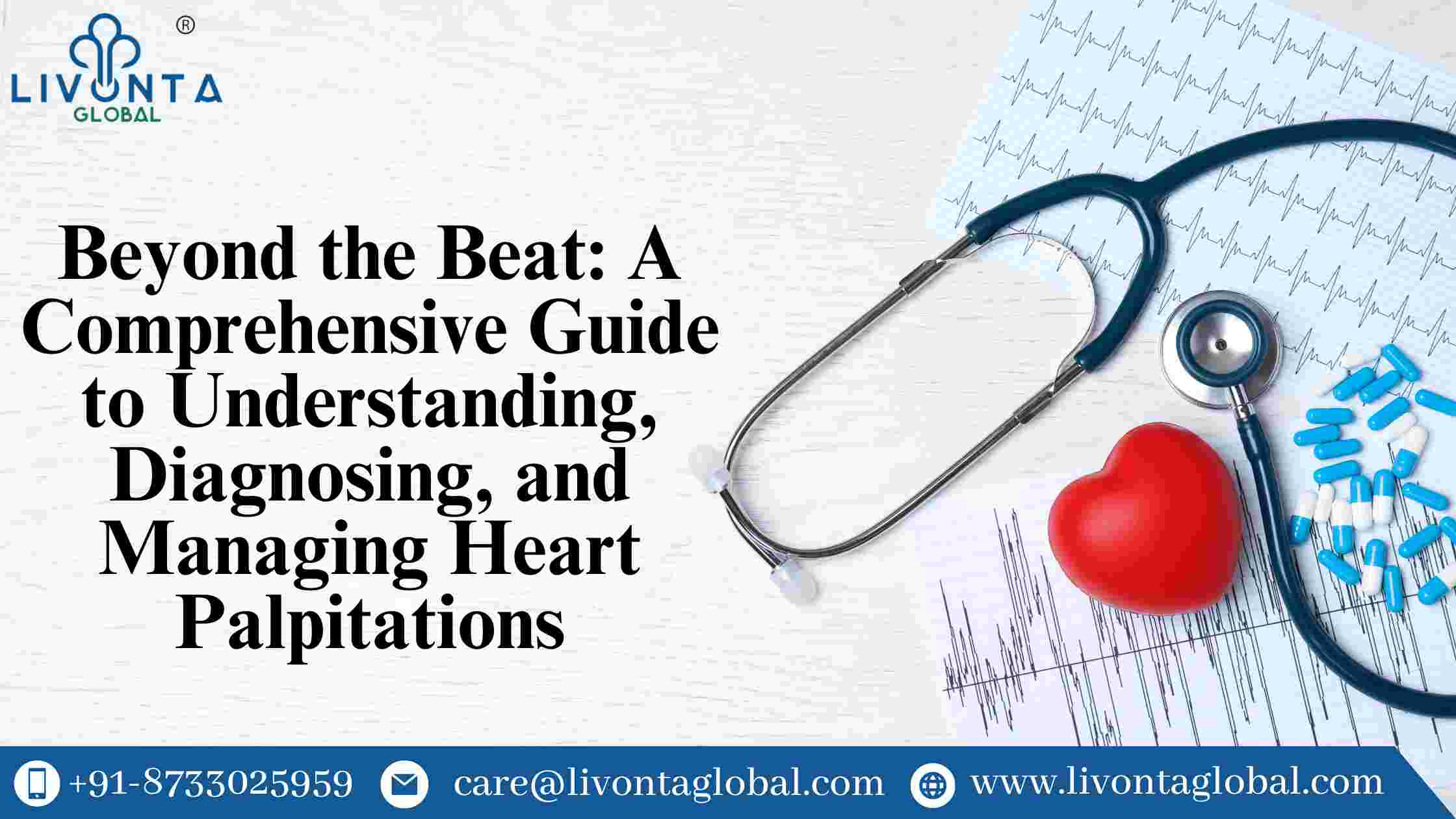
Beyond the Beat: A Comprehensive Guide to Understanding, Diagnosing, and Managing Heart Palpitations
Heart palpitations can be unsettling, but understanding their causes, undergoing proper diagnosis, and adopting appropriate management strategies can help alleviate anxiety and improve your heart health. If you experience persistent or severe palpitations, make sure to reach out to the experts of best heart treatment in India. Consult a healthcare professional from the best heart hospital in India for a comprehensive evaluation. Remember, prevention is always better than cure. So, the knowledge and proactive steps are key to effectively managing heart palpitations and leading a heart-healthy life.
Heart palpitations can be a cause of concern and anxiety for many individuals. The sensation of your heart racing or skipping a beat can be alarming, but it’s essential to understand that not all heart palpitations indicate a serious underlying condition. In this expert blog, we will delve into the topic of heart palpitations, exploring their causes, diagnosing methods, and effective management strategies. Let’s find out the plausible reasons surrounding heart palpitations and understand how to take control of our heart health.
What Are Heart Palpitations?
Heart palpitations are abnormal sensations of the heart beating too fast, too hard, or irregularly. They may feel like a fluttering, pounding, or a skipped beat. Even while they can happen to healthy people, palpitations can also be a sign of underlying cardiac or non-cardiac disorders.
Causes of Heart Palpitations:
Cardiac Causes:
- Arrhythmias: Various irregular heart rhythms, such as atrial fibrillation, ventricular tachycardia, or supraventricular tachycardia, can cause palpitations.
- Valve Disorders: Conditions like mitral valve prolapse or aortic stenosis may lead to palpitations.
- Coronary Artery Disease: Reduced blood flow to the heart due to blocked arteries can cause palpitations.
Non-cardiac Causes:
- Anxiety and Stress: Psychological factors can trigger palpitations in susceptible individuals.
- Caffeine, Nicotine, and Alcohol: Stimulants like these can increase heart rate and induce palpitations.
- Medications and Substances: Certain drugs, such as decongestants or thyroid medications, as well as illicit substances, may result in palpitations.
Can psychotherapy work?
A therapist can assist a person in figuring out what triggers their anxiety episodes and how to deal with them. A specific form of psychotherapy called exposure-response prevention tries to lessen attacks by teaching patients how to respond positively to triggers. By gradually exposing people to their worries, this technique helps them build coping skills. Additionally, a therapist could advise someone to try cognitive behavioral therapy (CBT). This kind of treatment focuses on a person’s mental patterns, such as negative ideas that fuel worry
Diagnosing Heart Palpitations:
Accurate diagnosis is very important to understand the cause of heart palpitations. Here are some common diagnostic methods:
- Medical History: Speak to your health provider about all of your symptoms, medical history, and lifestyle conditions.
- Physical Examination: A thorough physical examination, including checking pulse and blood pressure, helps assess your heart’s condition.
- Electrocardiogram (ECG): This non-invasive test is used to diagnose the electrical activity of the heart, and it helps to find out the abnormalities in heart’s rhythm
- Holter Monitoring: A portable device records your heart’s activity over 24 to 48 hours, providing detailed information about palpitations.
- Echocardiogram: This imaging test uses sound waves to visualize the heart’s structure and function, assisting in identifying structural abnormalities.
Managing Heart Palpitations:
Lifestyle Modifications:
- Reduce Stress: Engage in relaxation techniques like deep breathing, meditation, or yoga.
- Try and avoid the triggers: Limit or eliminate stimulants like caffeine, nicotine, and alcohol.
- Exercise Regularly: Physical activity promotes heart health and reduces stress levels.
Medical Interventions:
- Medications: Antiarrhythmic drugs or beta-blockers are commonly prescribed to manage palpitations caused by arrhythmias.
- Catheter Ablation: This procedure involves removing or destroying the heart tissue responsible for abnormal electrical signals.
- Pacemaker or Implantable Cardioverter Defibrillator (ICD): These devices help regulate abnormal heart rhythms.
Tags: Healthy Heart, heart transplant

